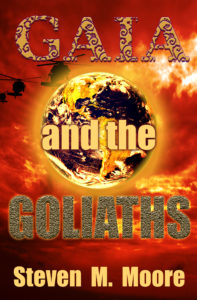Technical jargon…
When someone asks me for an explanation of some esoteric physics topic—say, “What’s dark matter?”—I know I can’t go on very long before I lose the person, because I’m that way too! (That’s why I subscribe to Science News. Asimov did too, so I’m in good company.) The reasons for this vary from not really caring (that someone…or me…is just trying to make conversation, at a cocktail, for example) to lack of attention (cocktails start having effect…or Jameson whiskey, in my case).
Most people are just users of science and technology—does anyone actually worry about how a smart phone works, whether it’s the little computer inside them or the RF signaling?—they’re not creators of that science or technology, they’re users. That’s fine. Other people often have skills that can boggle our minds, even if they’re not considered technical. I never knew the skill it takes to back up a semi until I had to wash them on a summer job. Have you ever watched a crane operator? Or seen a lifeguard save a drowning swimmer? Or a major league batter swatting a ninety-five-mile-per-hour pitch out of the park? That’s all technical knowledge I can’t even imagine having!
Writers have their own technical skills…and technical jargon to go along with it. Most people have heard of plot and characterization, but the jargon can go far beyond that. Poetry seems to be the worst in that regard—iambic pentameter sounds more like Romulan than English, for example (by the way, I don’t speak Romulan). I once had to learn some of that jargon—high school English teachers and college English TAs love to speak it and force you to speak it too. Maybe that’s why I didn’t like poetry very much until N. Scott Momaday taught me to love it…in spite of his TAs!
Fiction writers can speak in code with their technical jargon; Oxford comma, comma splices, magical realism, zeugma, POV, dialogue tags, internal dialogue, genres, metonymy, and synecdoche are some examples. (Authors who read this post can have fun looking up some of the definitions if they don’t know them. I hoped I spelled them all correctly…most from repressed memories.) Writers’ discussions and arguments are rife with technical terms to describe their craft as much as electrical engineers’ or crane operators’. In the arts, maybe they’re not as bad as artists, architects, sculptors, and so forth, but technical enough to make some wonder what language they’re speaking. (Maybe a screenwriter might even speak Romulan?)
The art and crafts world has its own technical jargon, but like that of technological and scientific jargon, users—readers, in the case of writing—don’t need to worry about it much. Storytelling is an art, and a reader can appreciate a good story without getting bogged down in technicalities, just like we can admire van Gogh’s “Starry Night” without learning about the technical details associated with how the master painted it (which didn’t require having just one ear, by the way).
Does that mean that both these artistic products are more human than the scientific and technological ones? Probably, but that’s debatable. Storytelling existed long before modern science and is a quintessential human activity; even the art on the walls of that French cave is storytelling, as are many paintings down through the centuries. The fact that we can now view such things on our smart phone just adds to their mystery.
***
Comments are always welcome.

“Detectives Chen and Castilblanco Series.” Their homicide cases often go from local to national and international—for example, Gaia and the Goliaths. In this seventh book of the series, the homicide case of an environmental activist leads to the discovery of an international conspiracy perpetrated by a US energy conglomerate and a Russian oligarch. Bastiann van Coevorden, Interpol agent and paramour of Esther Brookstone in Rembrandt’s Angel, has a cameo in the novel. And the villain of the first book in the series, The Midas Bomb, continues to play a nefarious role. But which side is he really on? Lots of entertaining reading for mystery, crime, and suspense fans! Available on Amazon and Smashwords and at all the latter’s affiliated retailers (iBooks, B&N, Kobo, etc.).
Around the world and to the stars! In libris libertas!
